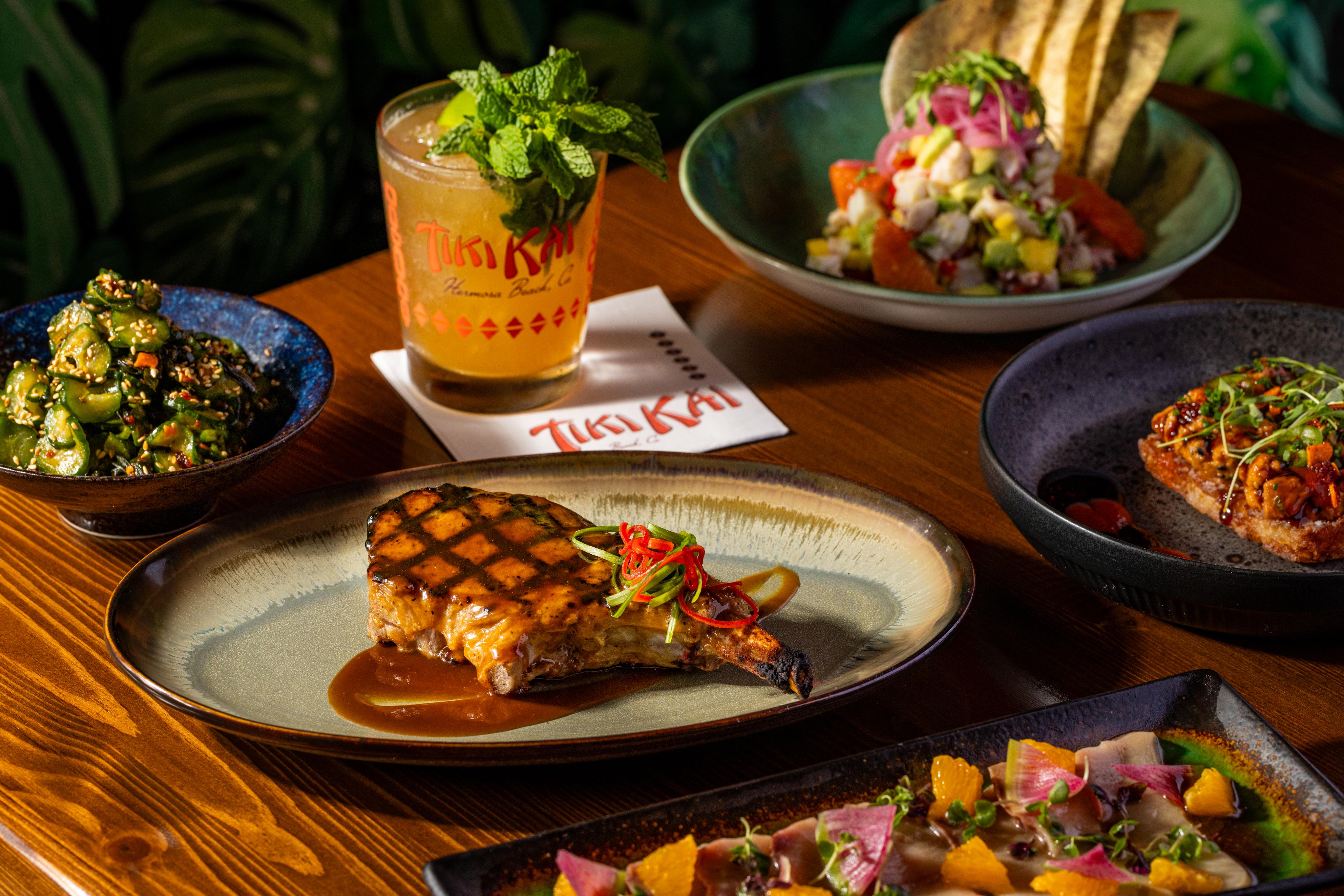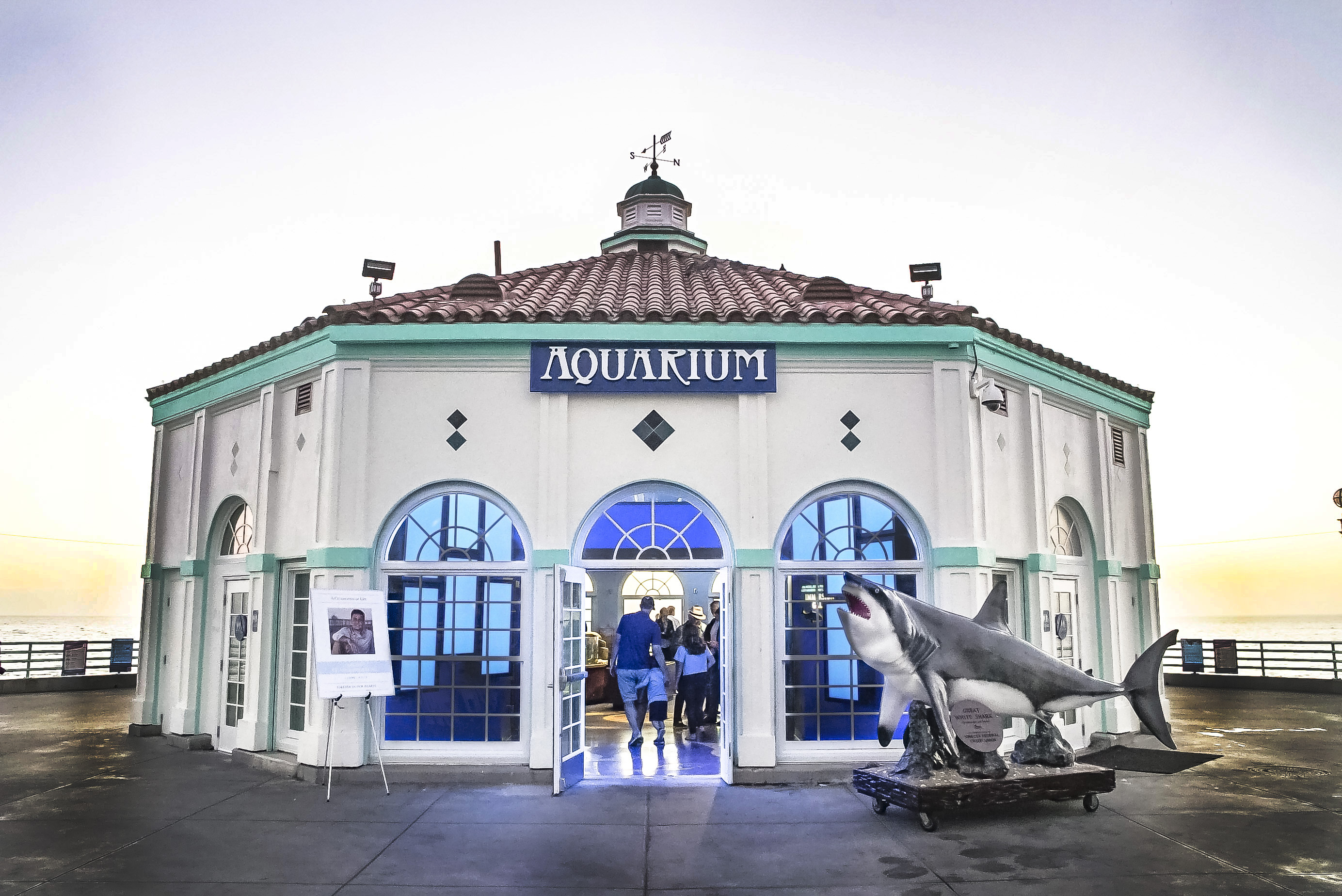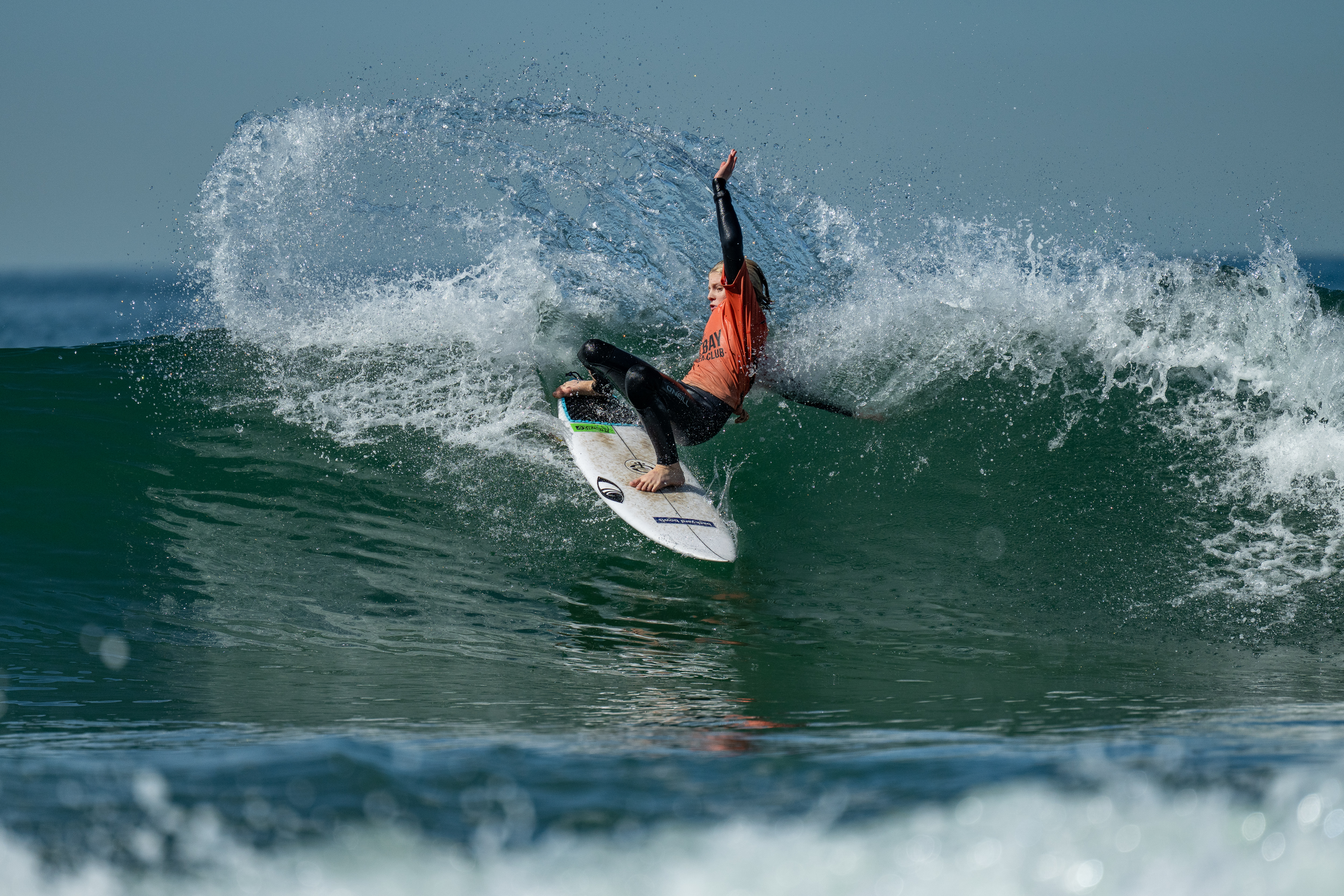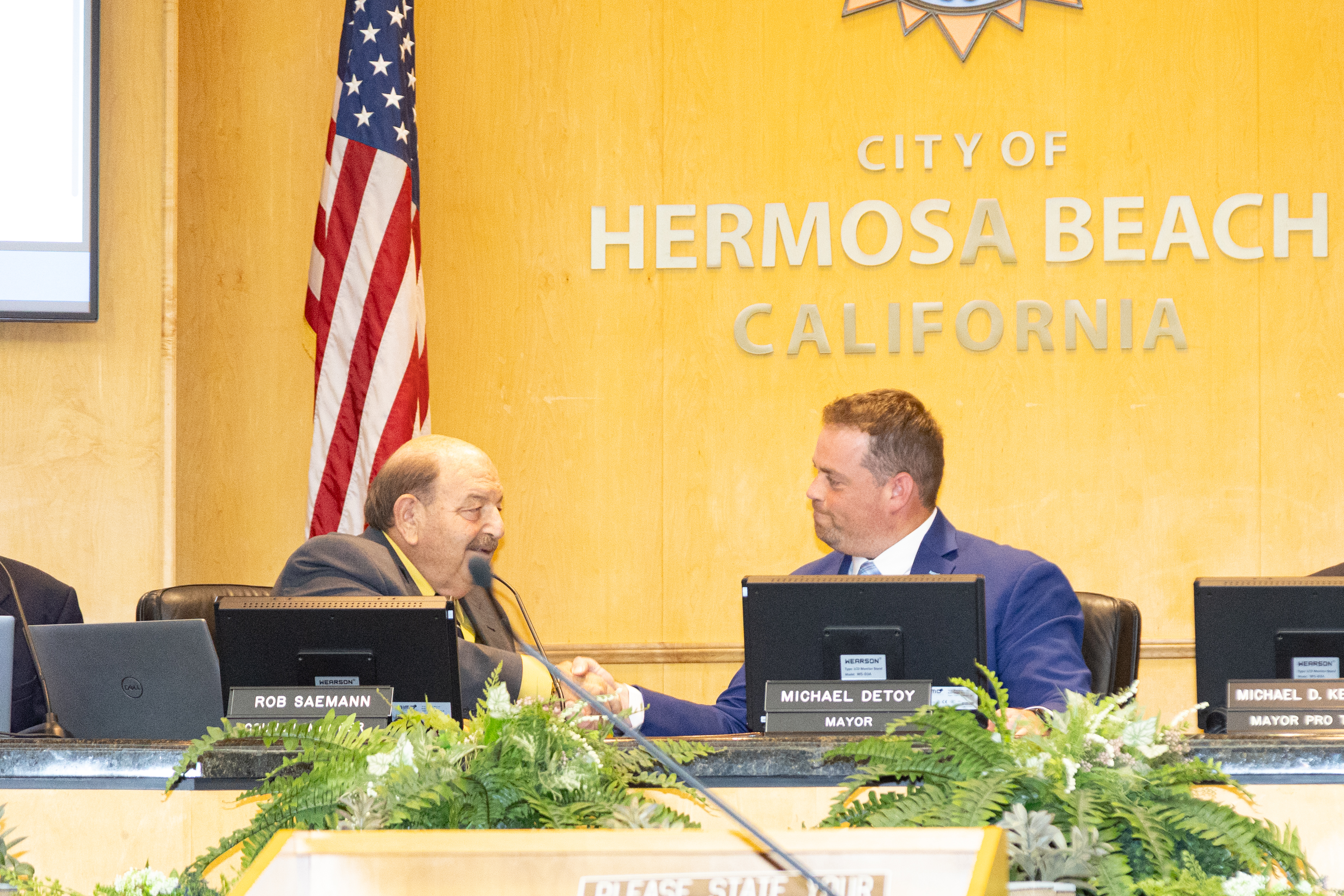
It’s the evening before the Catalina Classic Paddleboard Championship and Abby Brown, an 18-year-old from Santa Barbara, doesn’t exactly know why she’s here. She just knows that she’s here, on Catalina Island, setting her 12-foot Bark next to all the other competitors’ boards, because why wouldn’t she be? She’s a born waterwoman, driven by a compulsion to be in the water — she prefers training alone — and prodigious talent.
A professional surfer who achieved national fame riding waves with dolphins on Good Morning America, Brown began paddling when surf contests lost their appeal several years ago. She didn’t take the sport seriously until earlier this year, and on July 31, weeks after she graduated from high school, she won the 32-mile Moloka’i-to-O’ahu World Paddleboard Championship, becoming one of the youngest champions in the event’s 20-year history.

This evening, it hasn’t hit her she’s doing another paddleboard marathon tomorrow morning, less than four weeks after her first.
“That’s like doing two Iron Mans in a month,” Jo Ambrosi, a Classic veteran and women’s record holder, says before the race. “It’s insane. If Abby wins both, it’s a big deal.”

On Sunday, after paddling from Catalina to Manhattan Beach for six hours, 31 minutes and 41 seconds, Brown became the second – and youngest – woman to win both. Coronado lifeguard Carter Graves won both races in 2014.

Less than a minute behind her was DJ O’Brien, 50, another standout paddler who competed in the Moloka’i race on Jul. 31. O’Brien placed first in the women’s division of last year’s Classic; on Sunday she clocked 6:32:30, shaving about 18 minutes off her winning time.
Tanned, well-muscled, and ebullient, O’Brien is the founder of South Bay Mermaids, a local paddleboarding group for women. Katie Hazelrigg, a 25-year-old L.A. County lifeguard who came in fourth on Sunday with a time of 6:48:14, calls O’Brien her “Mer-mom.” So does Heidi Gastler, a local physical therapist who finished in 8:05:24.
“I’m Mer-mom to many,” O’Brien says, laughing.
This is one of the hallmarks of a niche sport like paddleboarding: it creates a tight-knit family that spans both generations and borders. Some of the family actually is family, like Yvonne Chavez and Marisa Kuiken, the first mother-daughter team to paddle in the Classic. In Sunday’s race Kuiken, a San Diego native and lifeguard, placed third – and first in the unlimited division – with a time of 6:42:16. The 29-year-old competed in her first Classic last year, when conditions were particularly rough. Despite the rigor of that race, she showed up again this year, and this time she brought her mom, a 57-year-old native of Mexico City who picked up paddling before she did.

“I came here last year to be Marisa’s support and this year I thought oh, you know what, I’ll try it,” says Chavez, who finished in eight hours, nine minutes and 25 seconds.
But even non-related paddlers are family, and among female paddlers there is a special kinship.
“That’s one of the greatest things about this sport is that we’re all friends,” O’Brien says. “It’s our community.”

Welcoming young girls into the family, and watching newbies — like Bernadette Foote — fall in love with paddleboarding is what keeps the fire aflame for veteran paddlers. On Sunday, Foote, 19, became the first person from Catalina Island to compete in the Classic. She grew up listening to the sound of the horn that kicks off both the Rock 2 Rock – a 22-mile race from Catalina to Cabrillo – and the Classic. Each year, her family would accommodate paddlers from the mainland. Intrigued by the sport, Foote promised herself she’d enter the Classic someday. On Sunday, she finished it in seven hours, 48 minutes, and 44 seconds.
“For me what’s gratifying isn’t that every year there’s a bigger number of girls, but that there are younger girls coming through,” says Ambrosi, who holds the record in the women’s unlimited division. “That’s what’s gonna keep longevity in the sport. They’re young and in their prime and hopefully they’ll nurture and bring other girls into the sport – to me that’s what it’s all about.”
In 1996, the first year she competed, Ambrosi was the only female of 102 competitors. Women had competed in the historic race before, but that year she found herself in a familiar position: doing something she loved despite the apparent lack of female fellowship. (Ambrosi works as a firefighter back home in Australia; this year she got a job as a ranger on Catalina Island. Teresa McDowell, a local facilities manager known as the godmother of paddlers, helped Ambrosi get the job.)
“We don’t get into things we love to be the first girls,” she says. “We get into it and then think how come there’s not that many girls? I wanna get heaps of girls in because it’s so cool! It’s just about not having any barriers – not about your size or gender, just about giving it a crack.”
Of the 93 paddlers who gave it a crack this year, nine were women – a tough group of females, strong enough in body, mind, and spirit to overcome powerful urges to quit and the searing physical pain of paddling 32 miles.
Jennifer Wessels, a San Pedro native, paddled with a torn pectoral muscle and still managed to cross the finish line in just over eight hours. Cat Malicki, who said she was “just trying to survive the race,” clocked 7:41:55 and in doing so fulfilled her promise to the donors who made pledges toward her paddle, clinching $1,070 for City of Hope – a global leader in the fight against cancer, diabetes, and HIV/AIDS.
“This endurance race will be a struggle,” Malicki, who works as a radiation therapist, wrote on her crowdfunding page, “but pales in comparison to what our patients go through.”
For the women, as for the men, the Catalina Classic is about setting and achieving goals, perpetuating the sport of prone paddling, and honoring both the ocean and the human body.
“But it’s not equal and equal,” Ambrosi says. “We’re not built the same and we don’t function the same. I’ve paddled this channel many times and guys have a different experience from me. Don’t tell me it’s the same because it’s not. What it is about is personal experience and the challenge of crossing the channel and what you learn crossing the channel and the support you give each other, because whether you’re a first-year or a 20-year crosser, you all support each other. You acknowledge each other’s success…because to get on the start line, prepared for this race is amazing. To finish is a big deal. Winning is a totally different ballpark.” B







